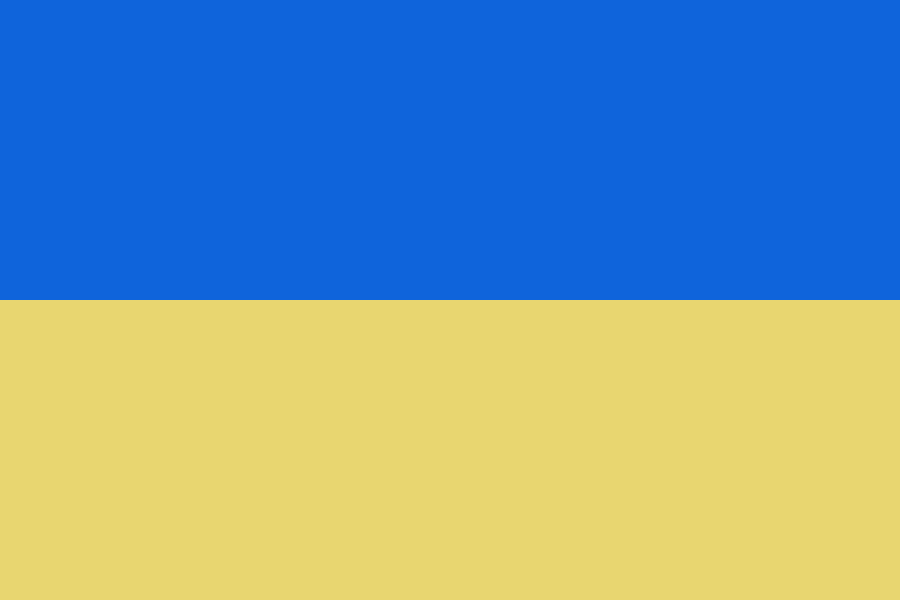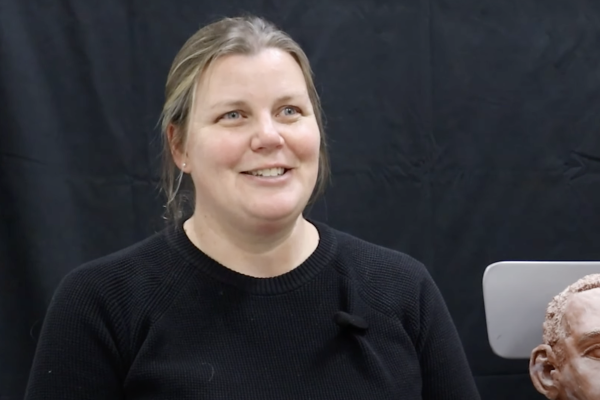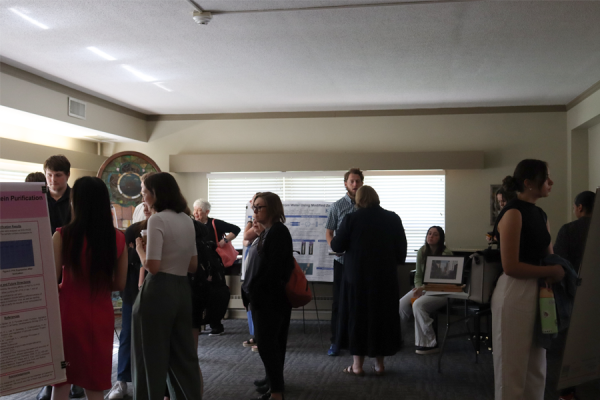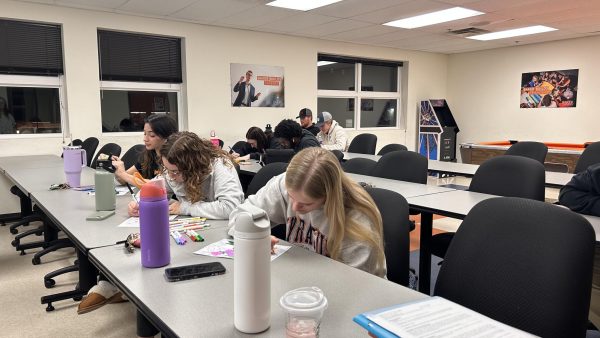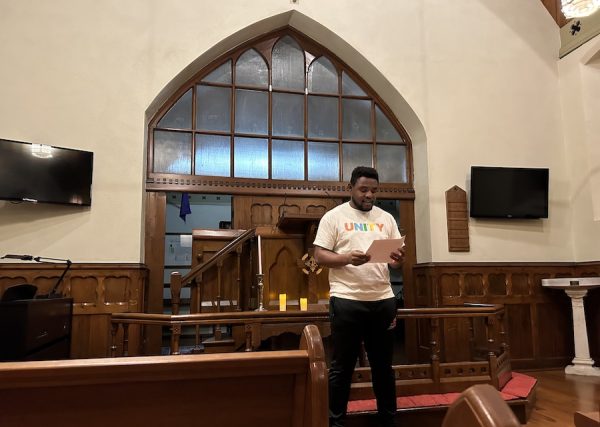What to know about the Russia and Ukraine conflict
On Feb. 24, Russia began to invade the Ukraine. Areas in and around the capital of Kyiv were hit with missiles. In reaction to the invasion, people and countries around the world have spoken out against Russia’s decision to invade.
On Thursday, Feb. 24 at 5:07 a.m. Ukraine time, Russian military forces launched the first missile attack at locations near the country’s capital, Kyiv. Within hours, more Ukrainian cities were struck with missiles. Military bases are the direct target for the missiles but that doesn’t stop any damage being done in the cities surrounding the bases. With the use of missiles, tanks and troops on the ground, Russia is aiming to seize Kyiv from the east, north and south. It has also been reported that citizens in the cities of Odesa, Dnipro, Mariupol and Kramatorsk heard huge blasts as well.
By Friday, Feb. 25 Russian troops have breached the northern part of Kyiv and gunfire can be heard as well as missile strikes are starting up again in Kyiv.
The possible Russian invasion of Ukraine has been in the news since 2014, but it wasn’t until Feb. 24 2022 that the first signs of that invasion were spotted. Here is some general knowledge about the conflict to know.
As the conflict continues, CNN reports they’ve heard from two senior U.S. officials who have direct knowledge and admit that Russia is encountering “stiffer than expected” resistance from Ukraine and are suffering from more loss than expected.
What is the motive?
Russian leader, Vladimir Putin claims that the United States and their allies have not been listening to Russia’s plea to reject Ukraine from joining The North Atlantic Treaty Organization (NATO). NATO is an alliance created with countries from North America and Europe. The alliance “provides a unique link between these two continents, enabling them to consult and cooperate in the field of defense and security and conduct multinational crisis-management operations together,” NATO says on their website.
The BBC reports that Putin demands NATO to stop spreading to the east and believes if Ukraine were to join NATO they would attempt to take back Crimea. Russia also wishes to keep the members who joined before 1997 and remove those who joined the alliance since that year.
In an address given on Feb. 24 before the attack, “Putin also claimed that the attack was necessary to protect civilians in the breakaway regions of Donetsk and Luhansk,” TIME reported. As those two regions located in eastern Ukraine are controlled by Moscow-backed separatists who are recognized as independent republics, that Putin wants to protect.
How are citizens being impacted?
On Feb. 25 the official Twitter of Ukraine’s Defense Ministry urged all citizens of age to join in the fight and help protect Kyiv. The BBC reported that 18,000 machine guns have been distributed to volunteers offering to help.
As of Feb. 27, CNN reports 380,000 citizens have already fled Ukraine, with the United Nations (U.N.) Deputy High Commissioner for Refugees, Kelly Clements, predicting four million citizens may try to evacuate as well. Almost half are entering Poland, while others have fled to Hungary, Moldova and Romania. 850,000 citizens have been displaced and many who are unable to leave are taking shelter in underground subways stations, using them as makeshift bomb shelters.
ABC News reports as of Feb. 26 that the U.N. High Commissioner for Human Rights has verified at least 127 civilian casualties total with 25 people killed and 102 injured from both airstrikes and shelling.
Reactions from around the world
Feb. 24, President Joe Biden introduced harsh new sanctions that will “include export blocks on technology, a centerpiece of Biden’s approach that he said would severely limit Russia’s ability to advance its military and aerospace sector,” CNN Business reports.
Along with the United States, the European Union, Japan, Australia, Taiwan and the United Kingdom have joined together in sanctioning both Russia and Russian individuals. New Zealand also announced they will stop trade with Russia and enact travel bans against Russian officials.
President Biden and allies announced on Feb. 26 that “they would expel certain Russian banks from SWIFT, the high-security network that connects thousands of financial institutions around the world, pledging to “collectively ensure that this war is a strategic failure for (Russian President Vladimir) Putin,” CNN reports.
SWIFT is the Society for Worldwide Interbank Financial Telecommunication, which connects 11,000 banking institutions together all over the world. Cutting Russia off from SWIFT would be detrimental to their economy and it would be difficult for any institution to send money in or out of Russia.
Opposition
As Russia continues towards Kyiv, opposition for this conflict is growing around the world and right in Russia as well. Many citizens are taking to the streets to protest their country’s decision to invade.
With protesters taking to the streets since Feb. 24, 2,692 arrests have been made with 1,370 of them coming from the capital, Moscow.
All around the world people continued to show their support for Ukraine by demonstrating and protesting the conflict. Countries such as the United States, Australia, Japan, Iran, the United Kingdom, Italy and more are seeing thousands of people rally against the conflict.
Locally, on Feb. 26 hundreds of Kansas Citians showed their opposition to the conflict by gathering at the Country Club Plaza.
Nuclear Warfare
On Feb. 27, Putin directed the Russian nuclear forces to be put on high alert, due to the escalating conflict. AP reports due to the aggressive nature of NATO as well as the financial sanctions put on Russia, Putin ordered the nuclear forces to be on high alert. While no nuclear warfare has been in play yet, it does raise the stakes of the conflict and increase fears.
The New York Times reports that instead of reacting similarly to Putin and raising the United State’s arms, President Biden has decided to de-escalate. President Biden has simply not responded to Putin’s new alert level and has made sure the United States’ own alert status has not changed.
As the country of Ukraine and its citizens face this conflict head-on, TIME has compiled a list of organizations for those who wish to donate and want to help.
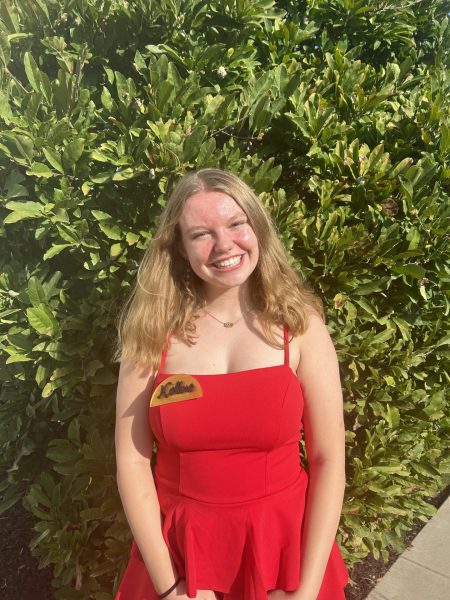
Kolbie Christensen is a junior Mass Media major and the Social Media Editor for The Baker Orange. This is her third year on staff. She is a member of Alpha...



